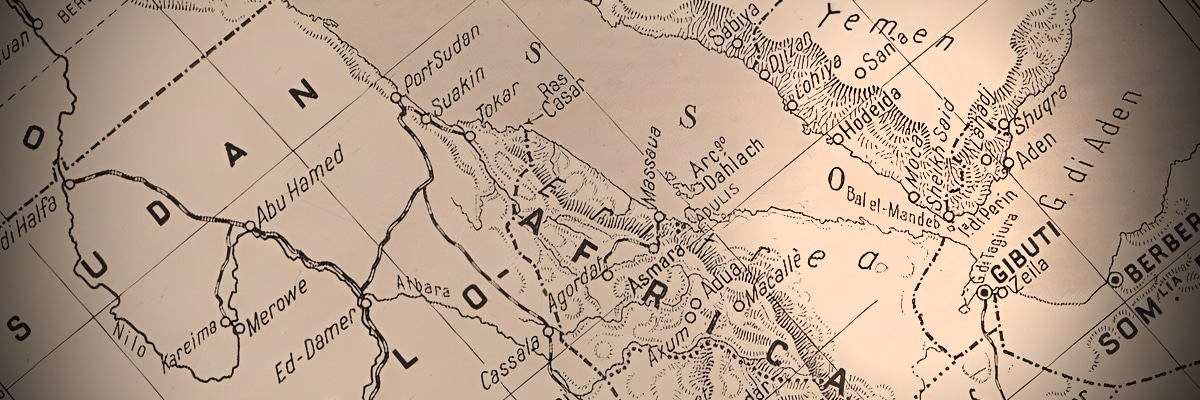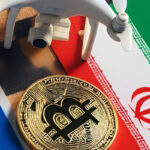Competition between great powers landed in the Holy Land, an open and bleeding vein of the Middle East, in the aftermath of the 50th anniversary of the Yom Kippur War. A crossroads of divergent interests and parallel convergences caused the conflict between Israel and Hamas to escalate rapidly, evolving from regional to global, resulting in a negative impact on globalization. Already knocked out by the COVID19 pandemic and the war between Russia and Ukraine.
The war between Israel and the constellation of armed Palestinian independentism is a mirror of the contemporary age, of which it condenses the distinctive characteristics, such as fragility, unpredictability and volatility, and is the overwhelming and magniloquent manifestation of the new phase into which the competition between great powers has entered: permacrisis.
The solution to the problems that have emerged during the multi-domain offensive of Anṣār Allāh, the "Partisans of God," likewise known as the Huthi collective, will not come from a military operation, which indeed may throw gasoline on an already burning region, but from a smart combination of diplomacy and re-globalization.
The high impact of a low-cost war
The Red Sea-Indian Ocean route, which in peacetime is the route along which 12-15% of world trade transits, has become a key trench in the latest long-distance war between Israel and Iran.
Surprising Israel, which was expecting the opening of the dreaded northern front, Hezbollah-controlled Lebanon, Iran actually transposed the second of the thirty-six ploys: it besieged Wèi to save Zhào. Iran activated the Arab-Mesopotamian section of the so-called Axis of Resistance, of which Anṣār Allāh is a part, by asymmetrically striking Israeli (and Western) targets on land and sea.
A low-cost, high-impact war. Anṣār Allāh's campaign of pirate assaults and do-it-yourself drone strikes and Iranian-made missiles, targeting ships bound for Israel or Europe, has had the effect of drastically reducing commercial traffic along the Western Red-Indian route.
It took Anṣār Allāh's soldiers only sixty days of guerrilla warfare and piracy to disrupt one of globalization's busiest routes, linking the opulent Euromarket to the factories of the sinosphere. 60 days, from Nov. 15, 2023 to Jan. 15, 2024, during which thirty-nine acts of asymmetric warfare were carried out, mainly directed at merchant vessels that can be traced back to Israel, the United Kingdom, and the United States.
The ensuing insecurity has resulted in a significant decrease in traffic along the Red, with just under a hundred and fifty merchant vessels, mostly Russian and Chinese, passing through in the first fortnight of 2024, compared to over four hundred in the same period in 2023. The largest cargo line operating companies have ordered their fleets to revert to the past, i.e., to fill up in India with good hope Cape direction, leading to an increase in the timing of delivery of products and thus their retail price. Against the backdrop of a general increase in insurance costs, regardless of the route followed by the cargo ship, also bound to affect the pockets of end consumers.
A triple directorship?
The sages of ancient Rome used to say that in the name is written destiny, nomen omen, and the offensive of the Partisans of God has fulfilled that of the geostrategic strait of Bāb al-Mandab, the gateway to the Red, which in the Arabic language means "gateway of the funeral lament."
The port of Eilat, an Israeli outlet on the Red Sea, experienced an 85 percent decrease in berths in December 2023 in comparison with the same period the previous year. Automobile industry giants such as Tesla and Volvo have suspended part of their production at some of their European plants due to extended lead times for components to be put on assembly lines. Qatari and British gas tankers have stopped crossing the Red River to reach the Euromarket, meaning less frequent and more expensive deliveries. The EU's economic and energy security compromised by the cheap war of Anṣār Allāh, who mere foot soldier in the service of Iran may not be.
Some clues suggest the existence of a Sino-Russian-Iranian control room behind the actions of the Houthi family-led organization. The first is the selectivity of the offensive: Western merchantmen attacked, Russian and Chinese merchantmen excluded from the attacks. The second is the arsenal used for the offensive: weapons and ammunition primarily from Tehran and secondarily from Moscow and Pyongyang. The third is the organization's economy: autarky is what differentiates an independent entity from a subsidiary (proxy) force, and Anṣār Allāh, far from being self-sufficient, lives primarily on Iranian credit.
Anṣār Allāh, in a nutshell, has at his disposal an arsenal that speaks Russian, Farsi, and Korean, possesses an economy that speaks Farsi, and is pursuing goals that perfectly coincide with the agenda of the Moscow-Beijing-Tehran trio: to achieve the coveted transition from unipolarism to multipolarism by means of the simultaneous creation of multiple crises (polycrisis) and an international climate in a perpetual state of tension (permacrisis). In the knowledge that the United States is in an onerous and unsustainable condition of imperial overextension.
Anṣār Allāh's offensive could be the result of coordinated action between China, Russia and Iran. Three powers are in the Red Sea for interests that are partly convergent and partly divergent: Iran to attack the supply chains of the Israeli economy, Russia and China to indicate to the United States that, via BRICS+, they can aspire to the title of guardians of one of the main corridors of globalization.
Those who frame Anṣār Allāh's solo war within a pan-Arab solidarity campaign are mistaken. Ideology is the screen of realpolitik. Other and deeper are the motives of the Yemeni guerrillas, who, with their campaign of archaeofuturistic piracy, have scattered fragments of world war in the Red Sea and carried out an underrated technical test of economic warfare between BRICS+ and the West.
Geopolitical analyst, foreign policy consultant and author. Graduate in Area and global studies for international cooperation (University of Turin), educated between Italy, Poland, Portugal and Russia. Specialized in hybrid warfare, Latin American issues and post-Soviet space.









Condivido l’analisi di Emanuele anche se, conoscendo personalmente a seguito di permanenza lavorativa tutti i Paesi che si affacciano sul Mar Rosso – dal Sudan all’Eritrea, da Djibouti allo Yemen – vi sono delle complessità e particolarità locali che interferiscono sui processi globali. Discordo totalmente invece da quello che percepisco, forse erroneamente, come un anelito alla riglobalizzazione, cioè alla sconfitta dei BRICS e al ripristino del mondo unipolare a guida americana. Per chi si definisce sovranista e conservatore, questo è l’inferno in terra; il quadriennio Bideniano è stato contrassegnato dal peggior combinato di guerre, crisi, pandemie, perdita di libertà, idiozie woke, balle climatiche e quant’altro, come MAI prima nella storia recente. Pertanto, che ben venga un mondo come quello agognato dai BRICS, multipolare e sovranista nazionale, ove gli USA tornino alla dottrina Trump, in cui ognuno si fa i sacrosanti fatti propri e non impone le proprie scelte agli altri.